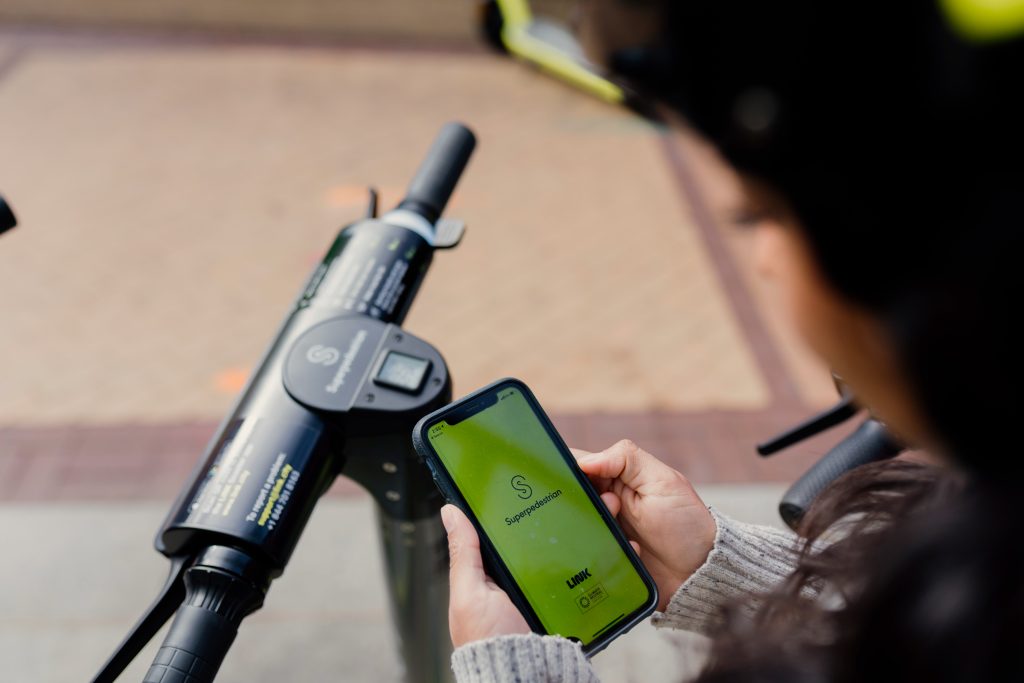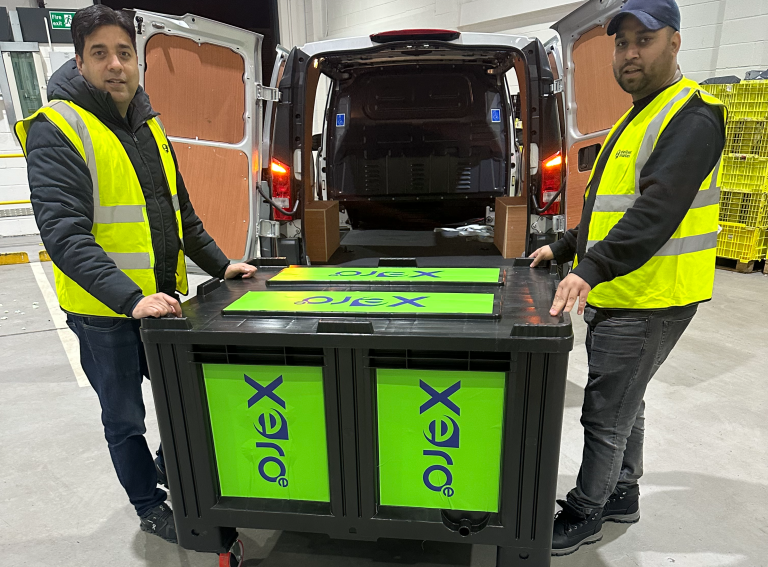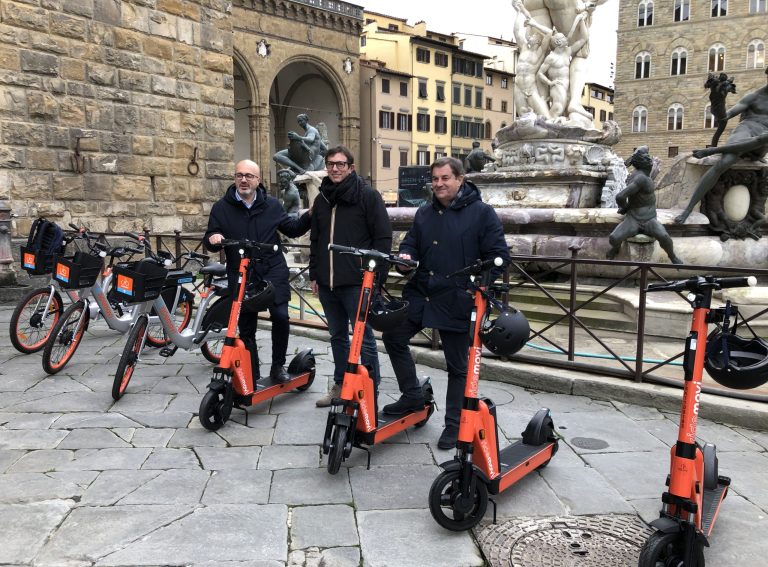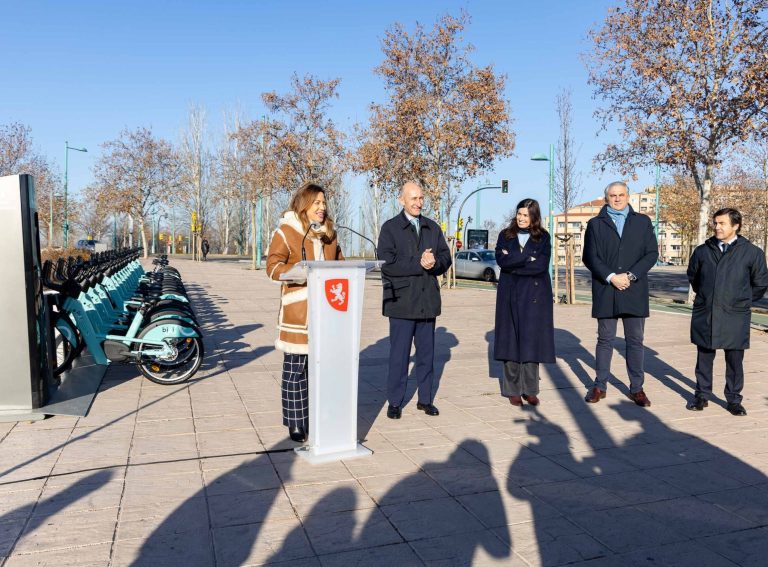It was September 2021 and the city of Oslo had just announced the requirements for Norway’s first e-scooter tender.
Two young entrepreneurs called Mats Breesth and Julian Hahn sensed an opportunity. But there was a slight issue.
“We didn’t have any scooters, we didn’t have any money, we didn’t have any experience operating scooters whatsoever,” Mats tells Zag Daily.
Fortunately, being the first ever tender in Norway, the requirements were pretty lax. Register a company, put some insurance in place, describe how the business would work. Crucially though, they didn’t have to show proof of any e-scooter fleet.
“We are very opportunistic people,” says Julian. “I think that’s one of the key traits for how we have gotten here. So we just went for it and launched an e-scooter business called Surf Beyond. We were approved for a licence but the only problem was that we had just 14 days to find 700 scooters and get everything up and running in Oslo or we would lose the license.”
The source of inspiration
Mats and Julian first met at a party while at Business school together in Oslo.
“I am a normal guy from Norway who likes to build businesses and to make things happen and I try to do everything in my power to utilise technology to create value for people and for the planet,” Mats explains. “That’s my mission for why I’m doing what I’m doing.”
Mats describes his business partner Julian as “the visionary one”.
“I have a harder time seeing what’s right in front of me,” says Julian. “But I think I can look pretty far ahead and this is what I’m trying to do every day to see where we’re going.”
Julian could see the value of e-scooters as far back as 2016 whilst working for an estate agent that specialised in high-end properties. “I bought my first electric scooter from an electronic shop in Oslo, it was a Segway. I remember when I was using it, everyone was looking at me in a strange way asking how does that scooter actually work without him kicking on it?
“I actually sold my car as I found it was much easier for me to get around the city and go to house showings on a scooter because I didn’t have to look for parking. But that was many, many years before we actually started the company.”
Circling back to September 2021 where Mats and Julian had just 14 days to find the investment that would fund their fleet of e-scooters, and Julian decides to bet big.
Betting your life savings
“At that moment I had sold what I believe was one of the most expensive apartments in Norway for about 10 million euros to a very wealthy Norwegian individual,” says Julian. “I knew that I needed money to start our company and the only person I knew with money was him so I called and told him about the opportunity and then managed to get a meeting the next morning.”
The next day the investor had brought two of his board members who, by chance, were already sold on the concept.
“I asked how they got into the office today and they had both happened to have ridden there on e-scooters. I also felt it very important to show this investor how much I believed in our business so I decided to match his €150,000 investment. This was all my life savings.”
The investor then loaned an additional €500,000 and helped them fix a bank loan of €700,000, bringing the total to €1.5 million.
“We somehow raised £1.5 million in 48 hours from just an idea,” Mats says.
With the funding raised, it was now a matter of sourcing a fleet.
“You would probably think that if you have the funds, it’s easier to buy scooters, but not when it is the high season because every scooter supplier in the world has a lead time, right? And long story short, after some, let’s say different ways of negotiating around the world, in a very crazy way, we managed to get all 700 scooters that we needed on the street within two weeks.”
With a fleet in hand, Mats and Julian worked round the clock to brand all the scooters, connect them to the cloud and deploy them on the street.
“During the daytime we dealt with everything in the warehouse, and at nighttime it was swapping batteries and fleet rebalancing.
“But I think that’s actually been really important for our journey to have done everything yourself as it’s much easier to think how many rebalances should I do a day now, or where do fleet managers spend most of their time, and so on.”
The duo successfully built Surf Beyond up from 700 turquoise scooters in one city to 5,000 scooters across 10 cities in Norway.
The acquisition
In March this year, Surf took the decision to acquire U.S. operator Superpedestrian.
“This was actually the exact same story all over again,” Julian laughs. “We didn’t have any money and now we had to raise a whopping €5 million.”
Mats and Julian had been paying close attention to the U.S-based operator given it had poured close to $200 million into R&D.
“I think one of the key things that we’ve learnt in this business is that it’s super important to take ideas into the real world as fast as possible,” Mats says. “And when I heard that they were facing financial difficulties, I shot Supepedestrian’s founder a message on LinkedIn. Five weeks went by and then suddenly I got a reply saying he would put me in touch with their liquidator. It was at that moment when we realised we will buy this, because there was no other possibility in our heads.”
Superpestrian had historically performed well in Europe which made it a more attractive investment opportunity.
“We managed to secure one of the biggest family offices in the Nordics to help us buy it,” Mats explains.
The family office needed only a week deliberating before investing €4 million. “In the end we got to just over €5 million because everyone else got ginormous FOMO.”
Surf Beyond became a new global player overnight as it transitioned from Norwegian-only operations to nine markets in total, including Spain, France, Portugal, Italy, Austria and Germany. With a fleet of 30,000 vehicles, the business is now valued at approximately £37 million. 100 of Superpedestrian’s staff also came too, roughly 80% of its workforce.
“This is something I’m really really proud of because our team is so smart.
“Superpedestrian was actually the third acquisition option we looked at in 2024. But the reason we went for Superpedestrian was due to the people and tech, which are absolutely incredible. I believe it’s the best tech stack software and hardware that exists anywhere in the mobility sector.”

The TikTok stunt that went viral
When it comes to marketing the Surf brand, Mats and Julian have taken an unusual approach.
“If you have three scooters in front of you and the price, vehicles and rider experience are all pretty similar, which one do I choose to get from A to B? In most cases, people use the one that’s already installed on their phone.
“We were not the first player in Oslo so we needed to think differently about how to get people to download our app. We started doing stunts in the streets asking people if they had our app installed and if they did we gave them €500 on the spot. And that really took off like crazy. Suddenly we were the most downloaded app in Norway,” Julian chuckles.
@twofounders Vi har en🎁 les på profilen😉 #twofounders #surfscooters #sparkesykkel #gründer #penger #gave #porsgrunn
♬ original sound – twofounders
“I remember it very well. We had like 500 followers or something on TikTok and then we posted this video in the evening. And I remember I was on a walk with my dog and watching the views, it was like 1000 views, and then my dog relieved himself and a few minutes later it was at 25,000 views and then it was like 80,000 views. We gained about 35,000 followers from that one video.”
The purpose of the TikTok channel is about how Mats and Julian are building a business from scratch so people can follow their journey.
“I believe that the reason we succeeded with our content was because we were not thinking about what’s in it for me, we were only thinking about how this content will be valuable, fun and relevant to the user. And this is exactly the same way we think about the business. The moment we start prioritising ourselves, the moment we fail,” says Mats.
Post acquisition and the road ahead
It has now been almost three months since Surf took over Superpedestrian.
“We have deployed approximately 40% of our acquired fleet and aim to have the rest deployed in the next six to eight weeks,” Julian says. “It’s very easy to reinstate Superpedestrian when you have all of the scooters, all of the tech, all of the people and a lot of the permits, so we’re in a really solid position going forward.
Surf recently organised its first ‘away day’ in Nuremberg with the whole team. “There’s no point in building all of these things if we don’t have fun while we’re doing it,” says Julian. “Information flows in a different way when we are all together. And it’s super important to both Mats and myself that we empathise with everyone in the business and that we care really deeply about what they do, but also how they feel doing it.
“I’m truly excited about this next year because we haven’t even come close to putting any of our ideas into place on a European or global scale. We are still at the very beginning.”





